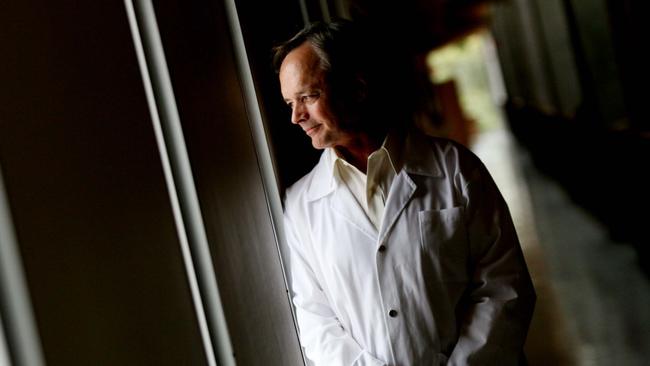'Sex education fuels our infertility crisis'
‘Gosh, I spent all of my 20s trying to avoid pregnancy and now I’m trying to get pregnant. If only I had known about how fragile fertility was.'

‘Gosh, I spent all of my 20s trying to avoid pregnancy and now I’m trying to get pregnant. If only I had known about how fragile fertility was.'
Australia’s looming fertility crisis is being fuelled by outdated approaches to sex education, say several reproductive specialists, who warn that the country’s secondary school system is failing to inform teenagers of the “basic facts of biology”.
John Aitken, recognised as one of the world’s leading sperm biology and fertilisation experts, said Australian schools must overhaul their teaching of sex education because the current program fails to inform students on the risk of infertility and the biological window in which woman can fall pregnant.

“In assisted conception centres, the average age is 36-37, and for many of those women, it comes as a surprise that their fertility is in decline. They often think fertility is lost at the menopause, but it needs to be understood it’s lost a decade before,” Professor Aitken said.
“They central point is sex education has been driven by historical pressures to prevent pregnancies in teenage girls. The message is ‘Boy meets girl and there’s the inevitable consequence of an unwanted pregnancy that has to be terminated or the baby has to be given away and that’s obviously tragic’,” Professor Aitken said.
“But that needs to be urgently rebalanced by an understanding in sex education that fertility is not a tap you can turn on and off.”
Professor Aitken previously said Australia had become “chronically dependent” on assisted conception therapies and ignored the dramatic decline in birthrates, making the country a “prime example” of a modern economy relying on immigration policies to artificially prop up plummeting fertility rates.
“We shouldn’t be surprised when we find we have a skilled workforce shortage. We should not be surprised when we find problems with the age structure of the population such that we can’t care for old people in our populations.”
Professor Aitken said dangerous demographic changes linked to plummeting birthrates could be partly redressed by wider fertility education at schools.
Monash IVF’s Giselle Crawford, who has worked in obstetrics and gynaecology for more than a decade, said young women and men were being let down by Australia’s approach to sex education.
“I see patients in their late 30s and early 40s, and they say: ‘Gosh, I spent all of my 20s trying to avoid pregnancy and now I’m trying to get pregnant. If only I had known about how fragile fertility was.
“It seems to be [sex education] very focused on old impressions that the minute you look at someone of the opposite sex you’re going to get pregnant or get an STD,” Dr Crawford said.
“I think the secondary school curriculum is failing us.”
Despina O’Neill, 30, who gave birth to twin boys three months ago, said she and her husband, Nick, would have benefited from a basic understanding of fertility before they discovered they were cystic fibrosis carriers.

To ensure their twins, Sebastian and Leonidas, were not born with the condition, the couple had their IVF embryos screened to eliminate those with the fault.
“We were lucky this was detected and we could proceed with IVF, but we had none of the education we needed about fertility and checking to ensure I could give birth,” Mrs O’Neill said.
“Being conscious of fertility was never spoken about at school. It was basically ‘just do everything you can to avoid being pregnant’.”
“I doubt many 17-year olds need to be told about how to wear a condom and about the morning after pill. This kind of thing is all over social media and the TV.”
“But the basics of biology and fertility itself seem to be ignored.”



